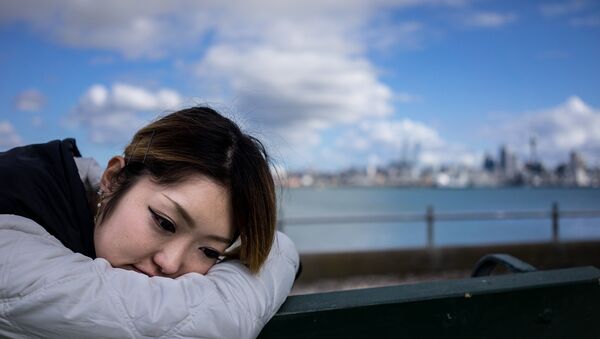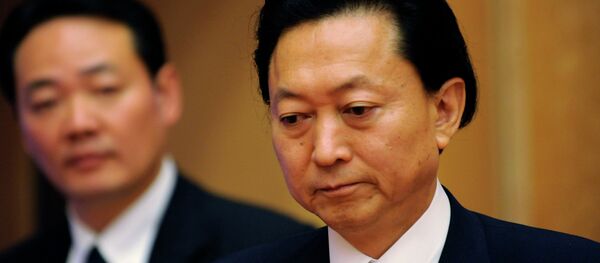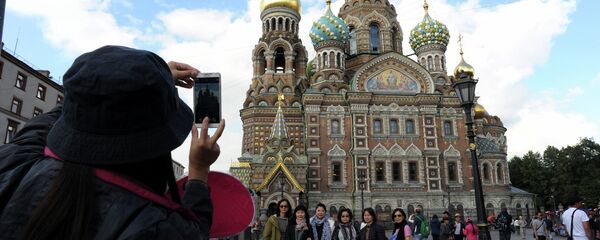However not all the Asian countries share the same attitude towards leisure. When the tiny Buddhist Himalayan kingdom of Bhutan was crowning its youngest monarch back in 2008, it marked it with 40 days of celebrations including two weeks off work.
Russians and Europeans might be also surprised by the statistics from Japan and South Korea as people in Russian and Europe enjoy their vacation days.
Sputnik sat down with psychologist, PhD at The Institute of Psychology at The Russian Academy of Sciences Nadezhda Mazurova, who practices both in Russia and in Japan, to learn why the Asians, who are known for their hard work, feel guilty about their well-earned rest.
"Apart from the national mentality, it is most likely due to the systematic upbringing from the early childhood," she told Sputnik.
She further explained that children are taught from early on that they should not cry and thus cause trouble to the people around them. Later in school they are told to obey the teacher and behave ideally, and so when they are adults, they have this lesson ingrained in them, and the worst thing that can happen to them is to look different from others and cause trouble to anyone.
Such a psychological pattern, she said, might get so deeply rooted in their consciousness, that only the feeling of behaving correctly and working well allows them to feel at ease.
However, the sense of guilt for the slightest violation of any rules or poorly done work can lead to panic attacks, the psychologist said.
She also noted that for a long time there was no practice of paid vacations in the country, and the Japanese simply got used to it.
Their behavioral pattern was formed long ago: "I owe to the state, I owe to the company, and they owe me nothing in return."
One more interesting fact which is peculiar to the country is that Japan ranks first in the world by the amount of personal belongings left in public transport. The Japanese simply sleep on their ways to and from work.
About 10,000 people die annually in Japan from overwork. There is a special term and diagnosis, Karōshi, which can be literally translated from Japanese as "overwork death.".
However, according to the country's President magazine, Japan, at the same time, ranks the first in the world by the number of people who do not feel "the lack of vacation."
Nadezhda Mazurova said there might be a certain dissonance between what people think and what they feel.
"In their consciousness, their psychological pattern might tell them that they had a rest. However in the evenings many of them can't relax and fall asleep. They long for some depressants, either alcohol or medication. However they do not realize it, as their receptors are firmly blocked," she said.
Hence while taking far less vacation days than, for example, in Russia, the Japanese feel a lot more comfortable.
"It is not a customary practice for the Japanese to relax on a beach, sun bathing, swimming or doing nothing. While travelling abroad, they often move from one city to another in order to see and learn as much as possible," he told Sputnik.
Probably due to this reason they are satisfied with fewer days for their vacations, he suggested.
Meanwhile, this attitude towards taking time off has become a matter of great concern to the Japanese authorities who try to motivate their residents to rest more, in order to minimize their overwork. Japan is now ready to force the employees to take at least five days of paid vacation.







